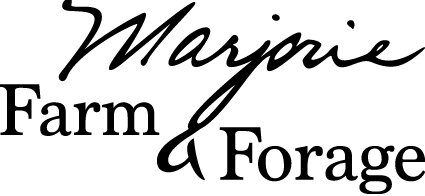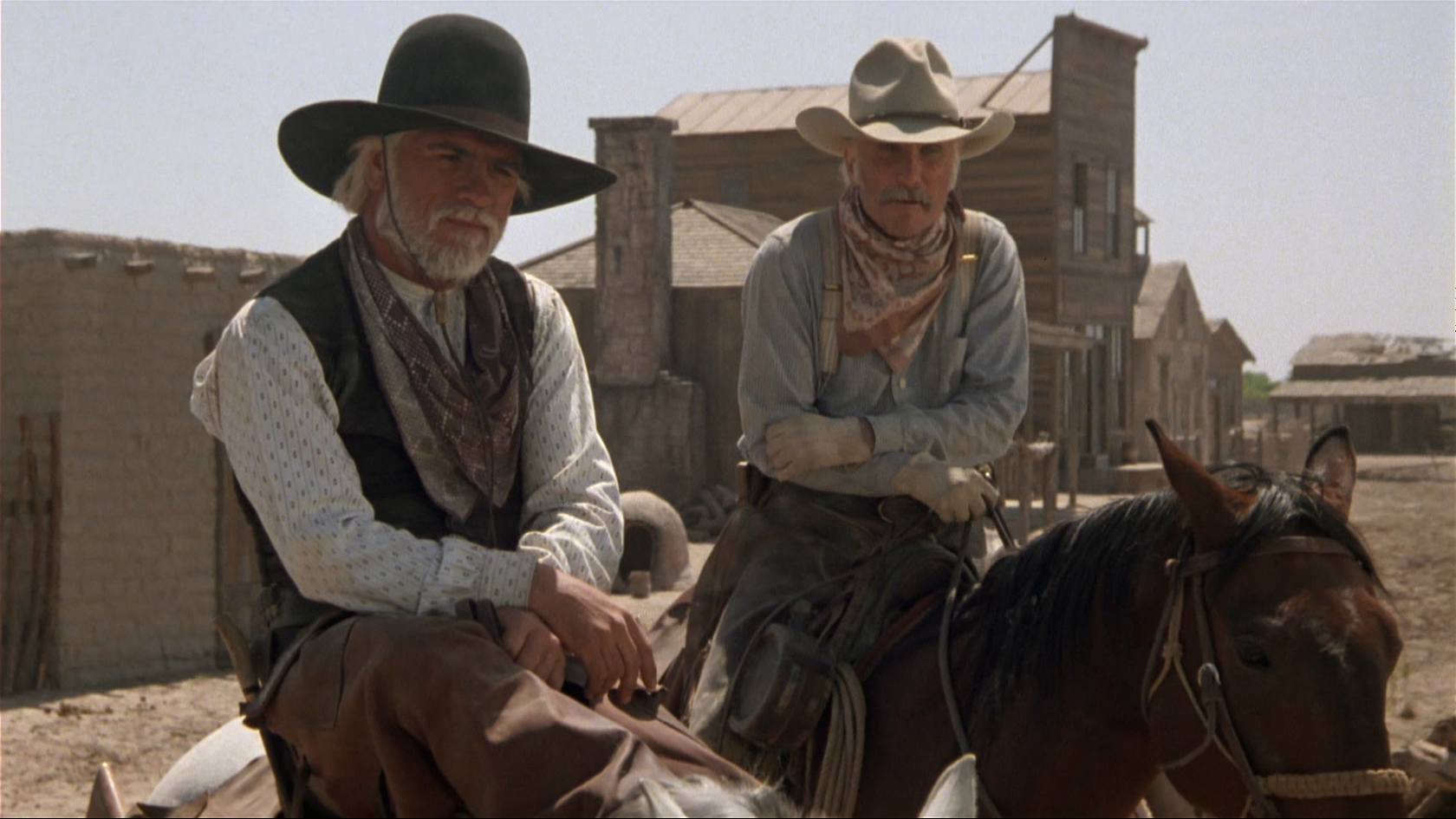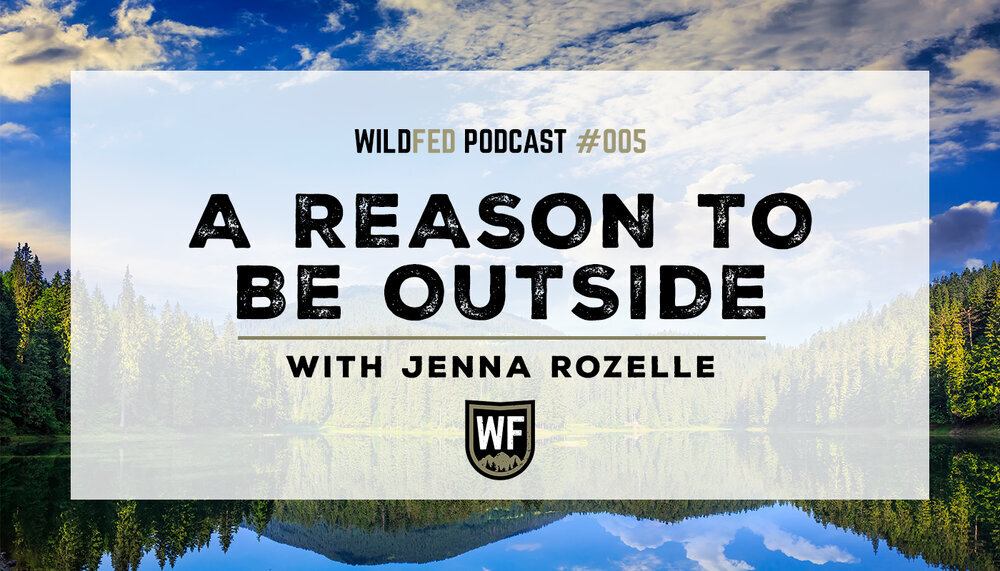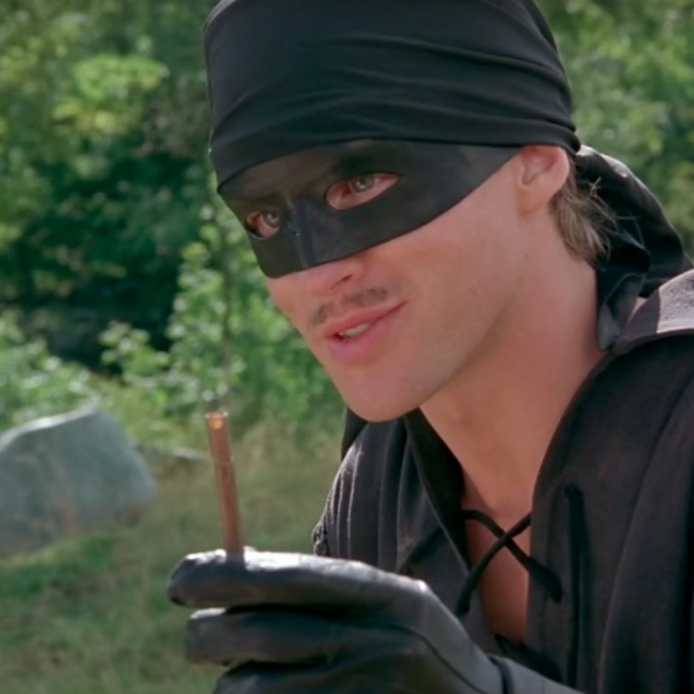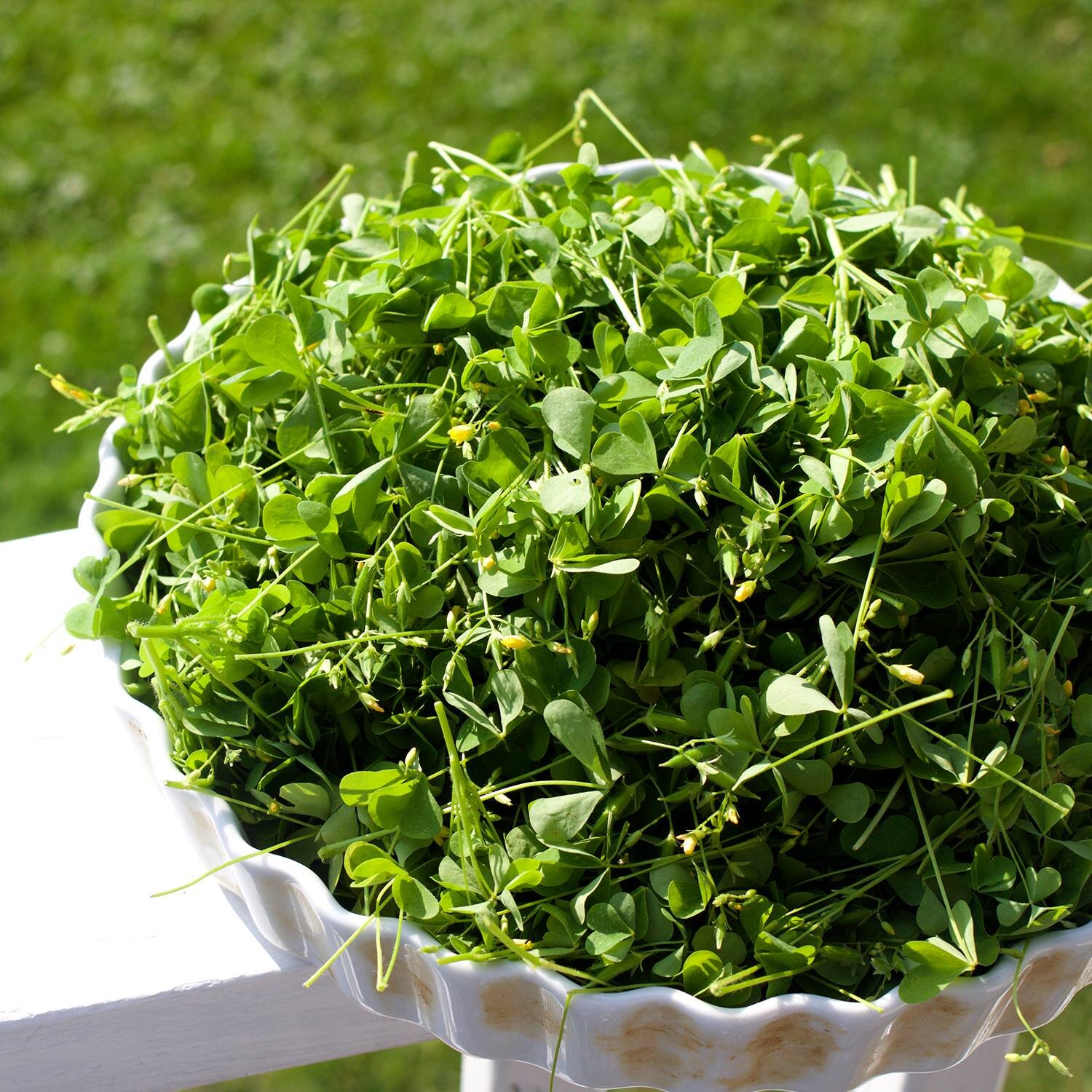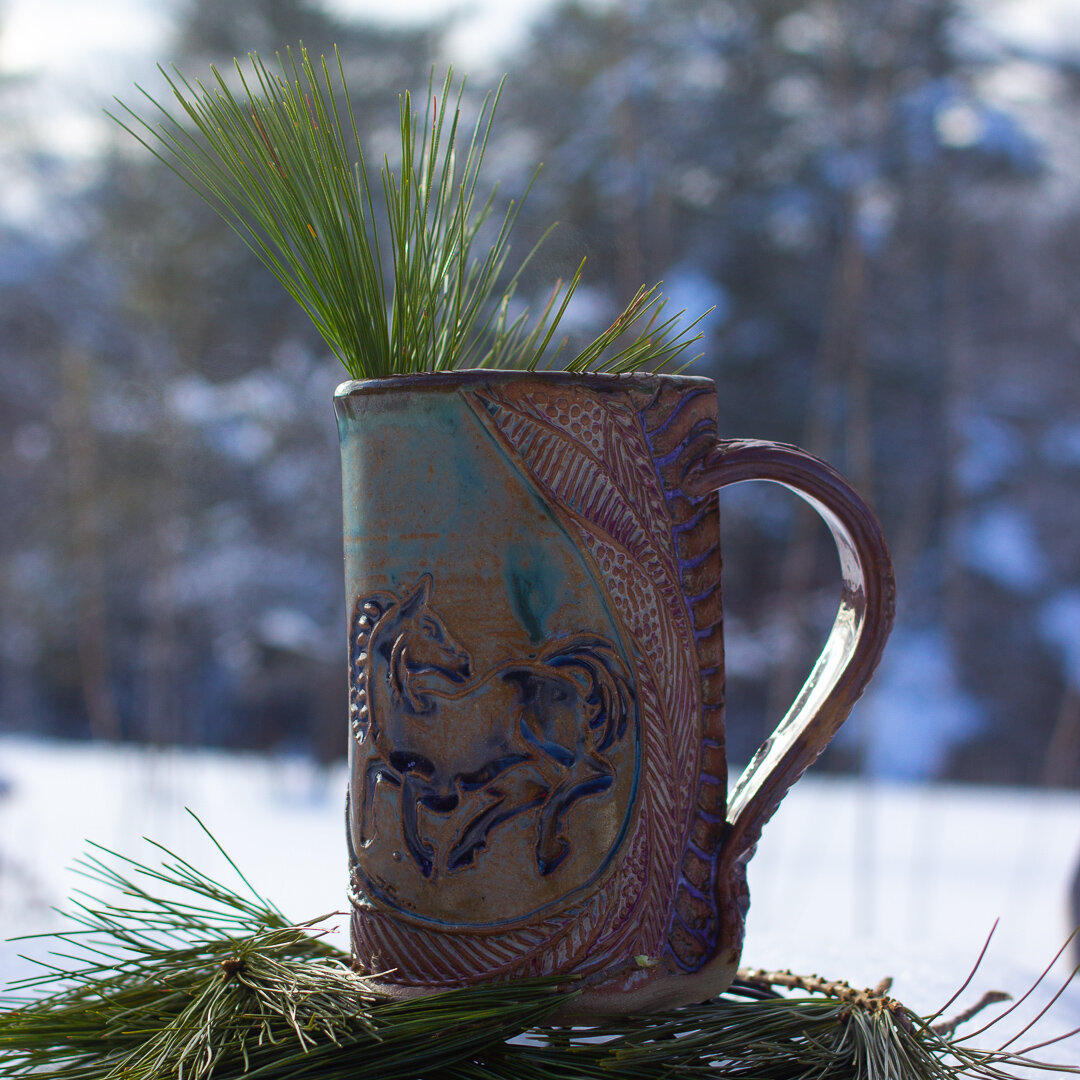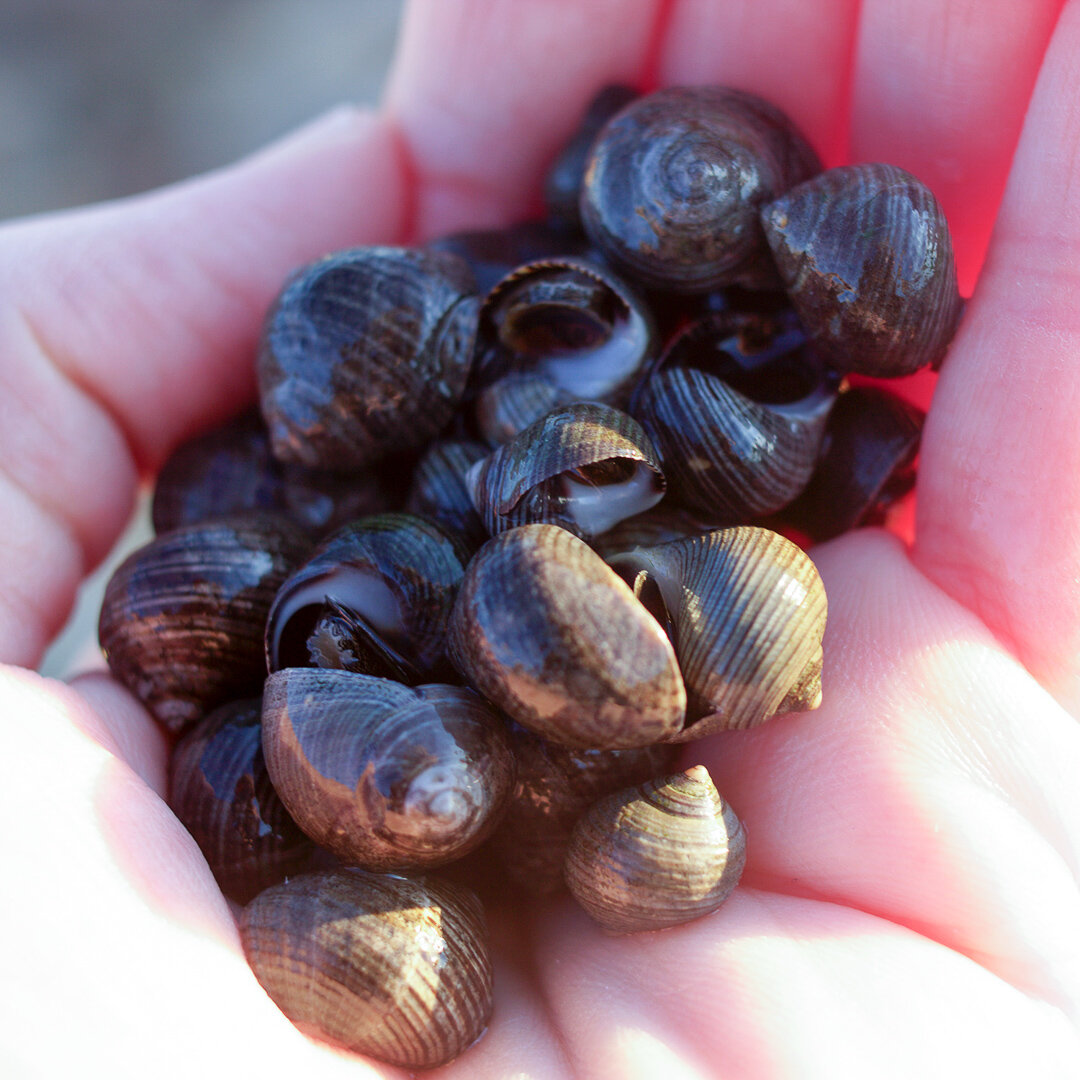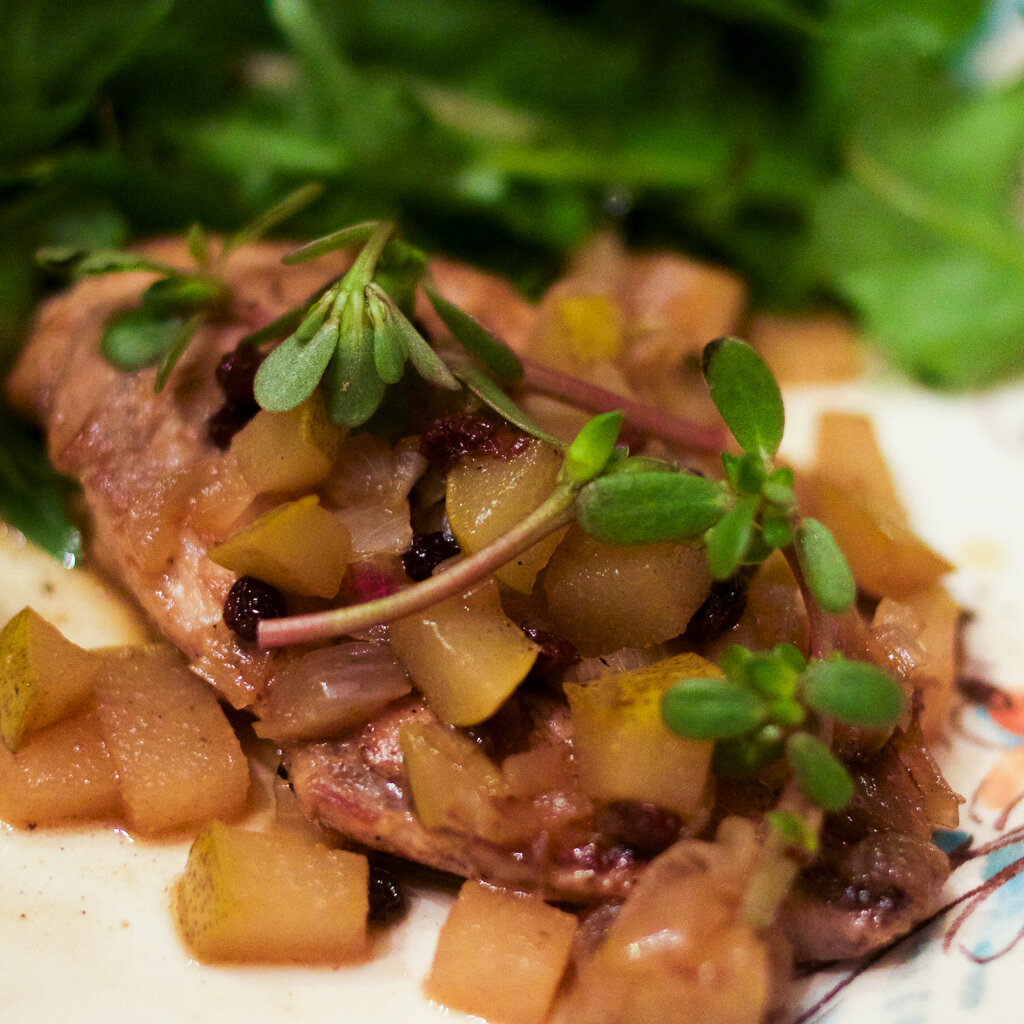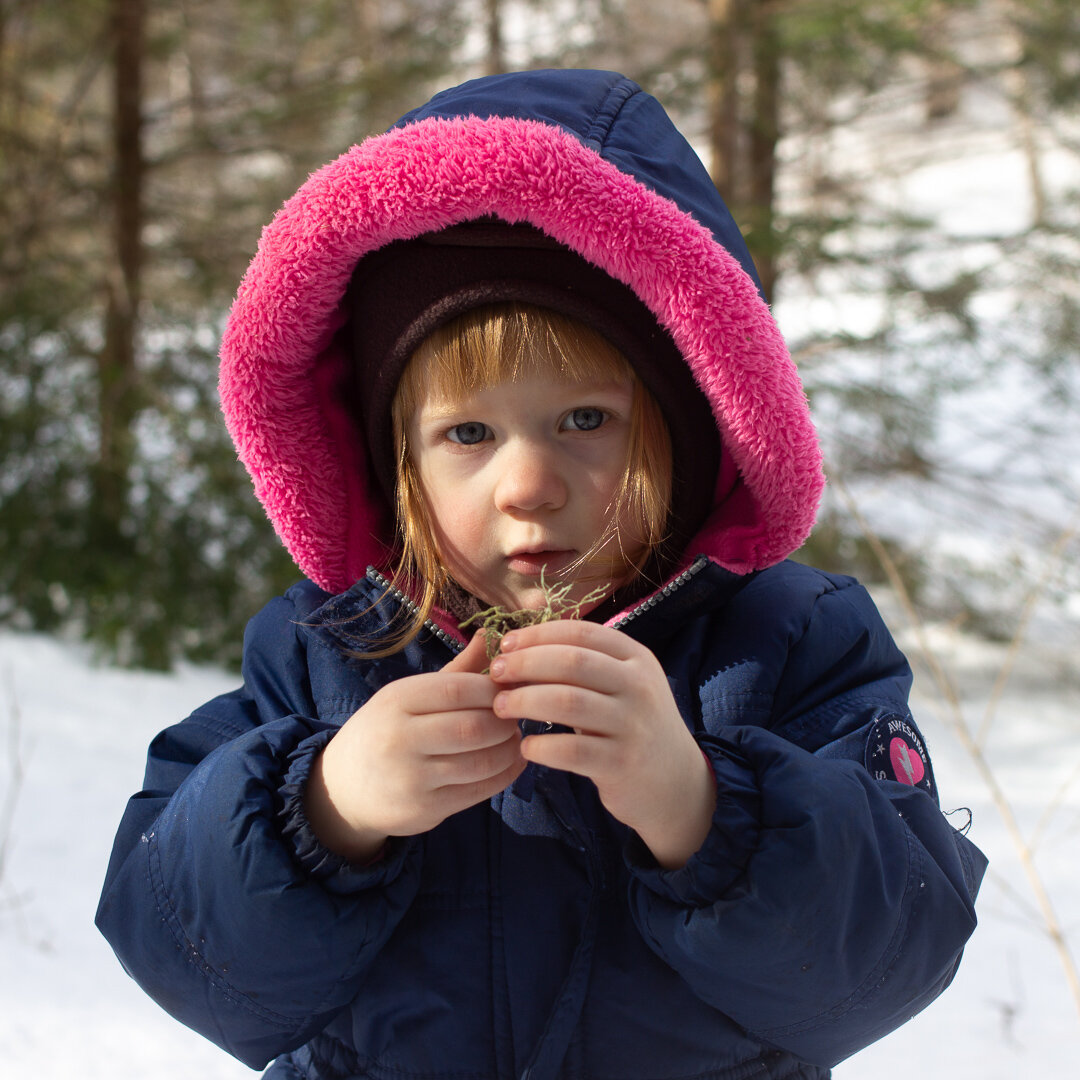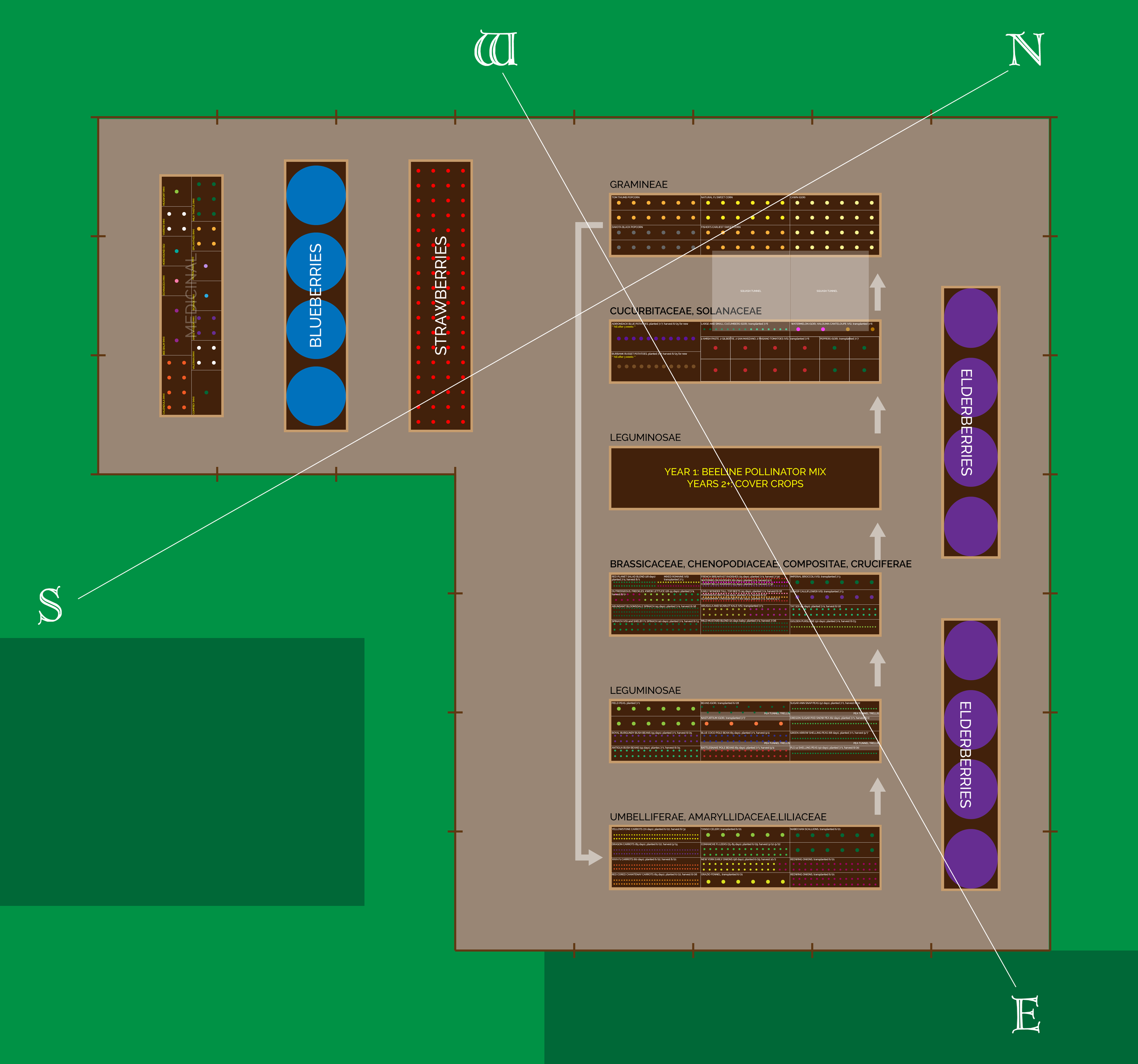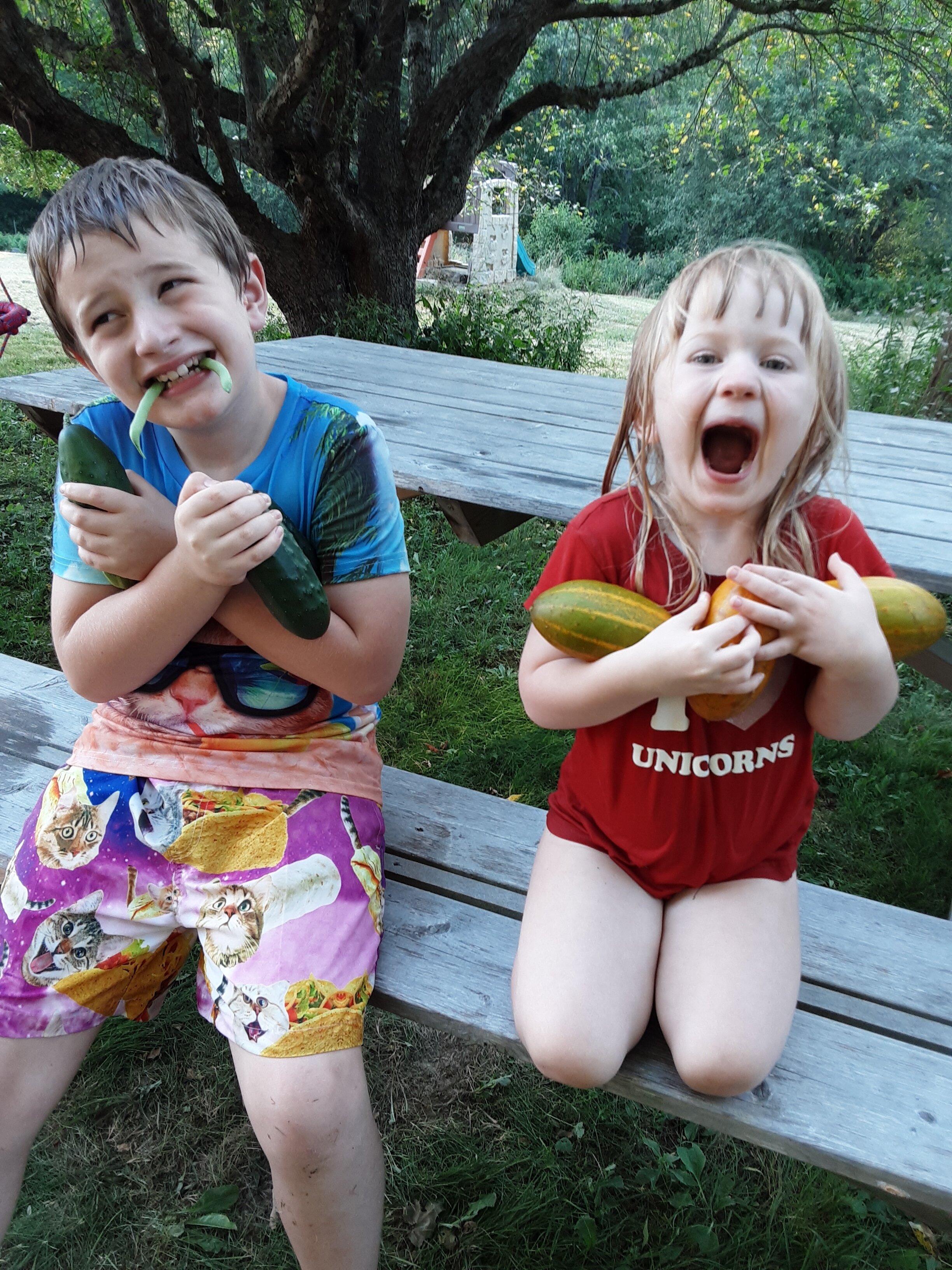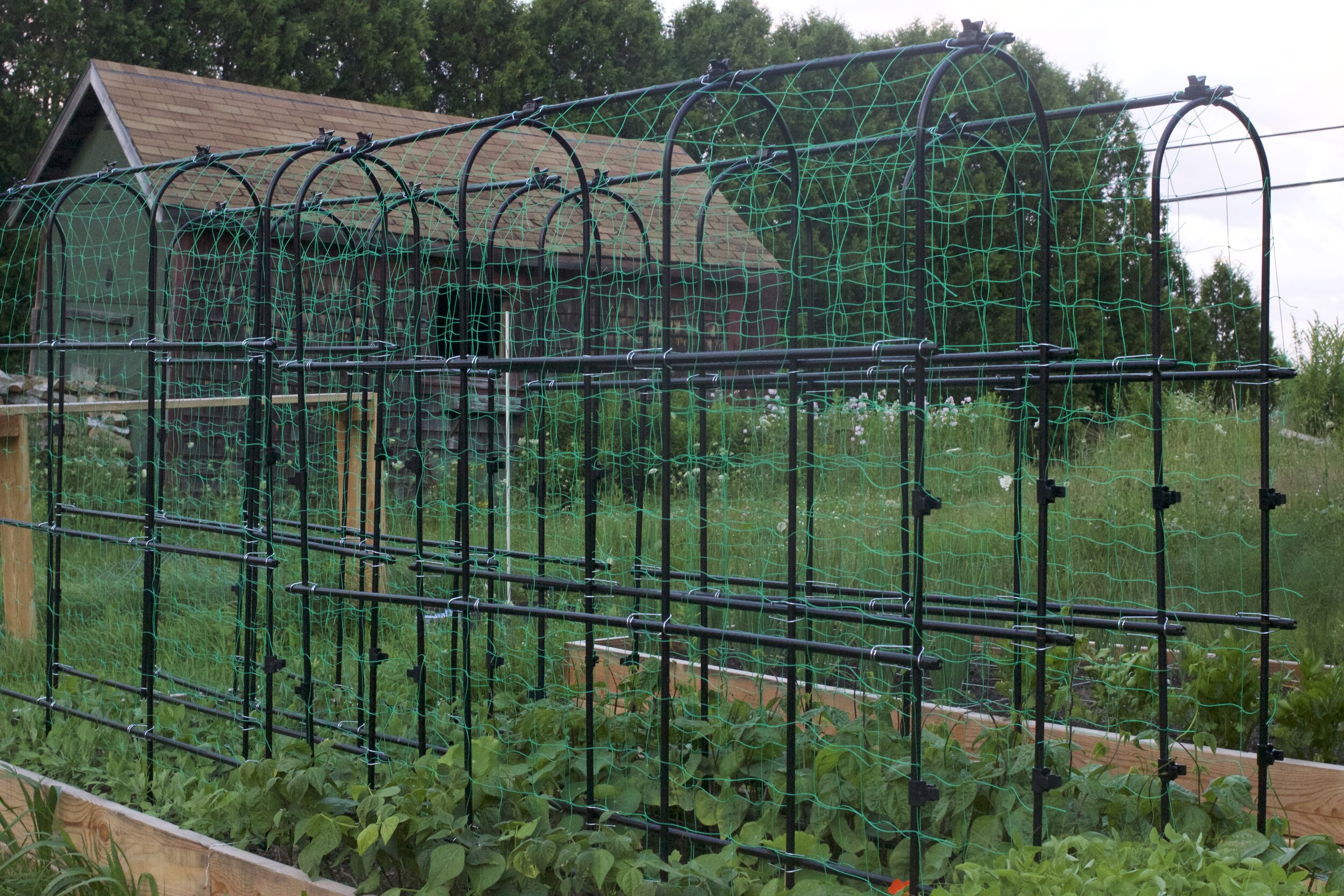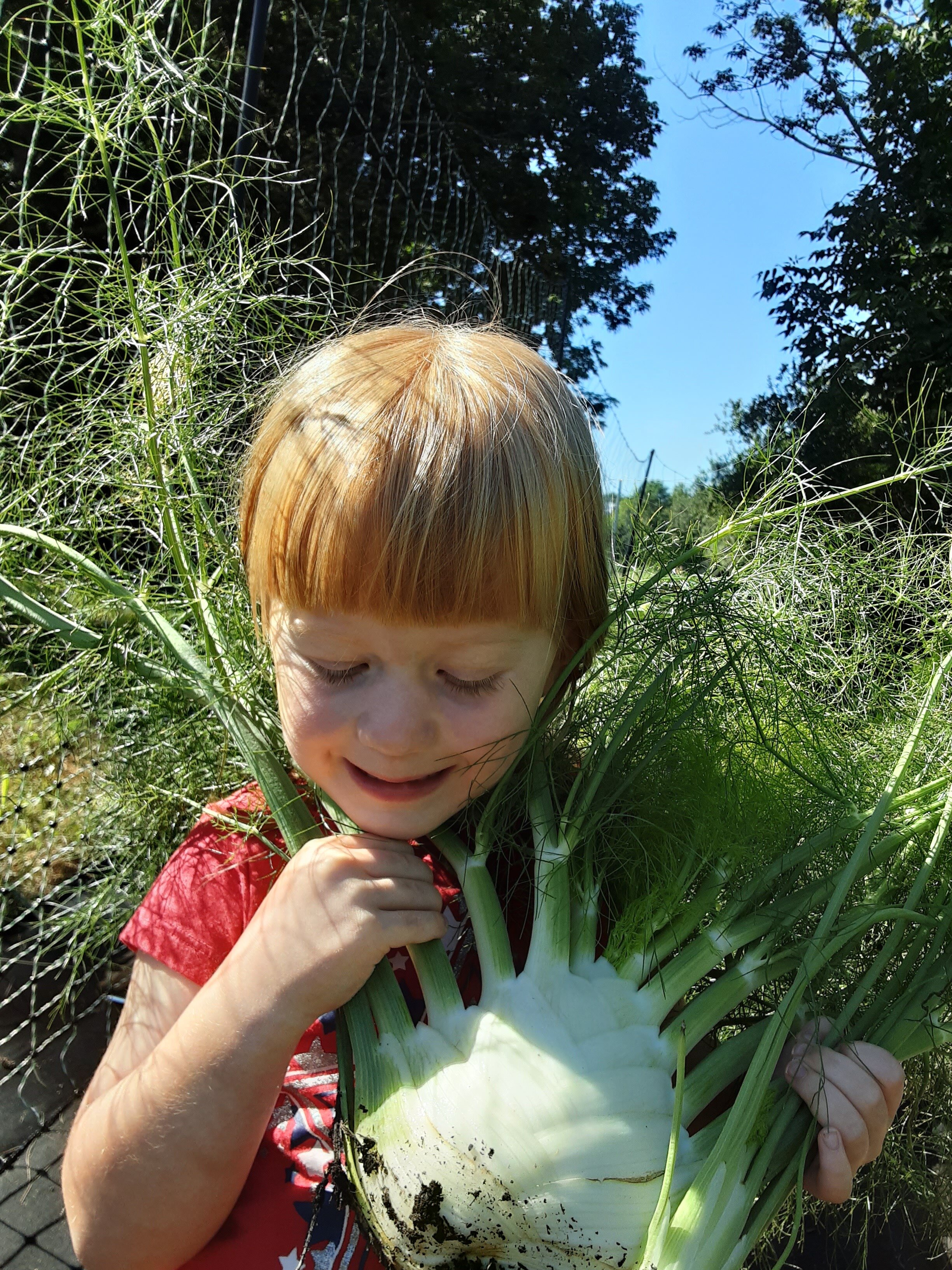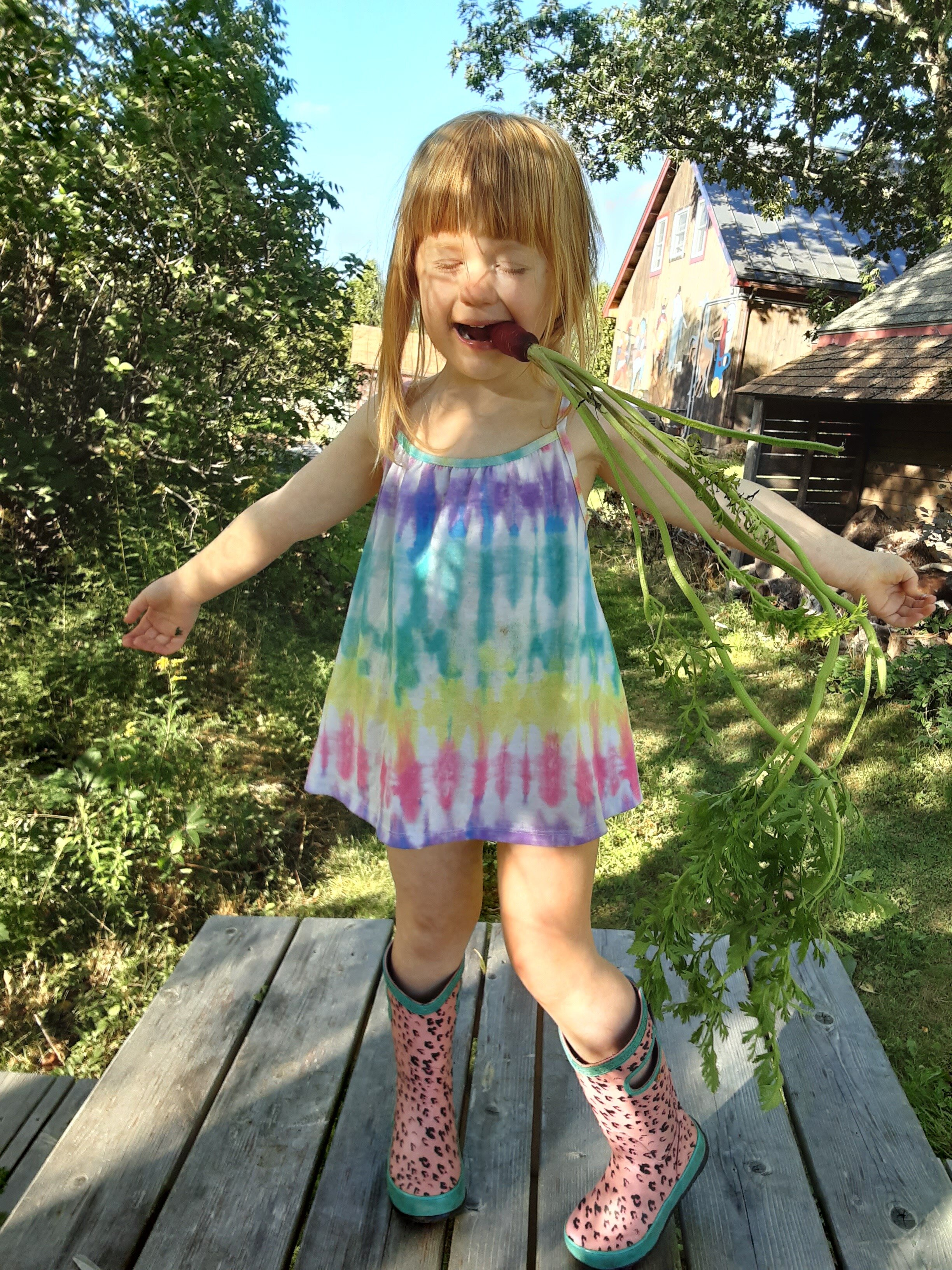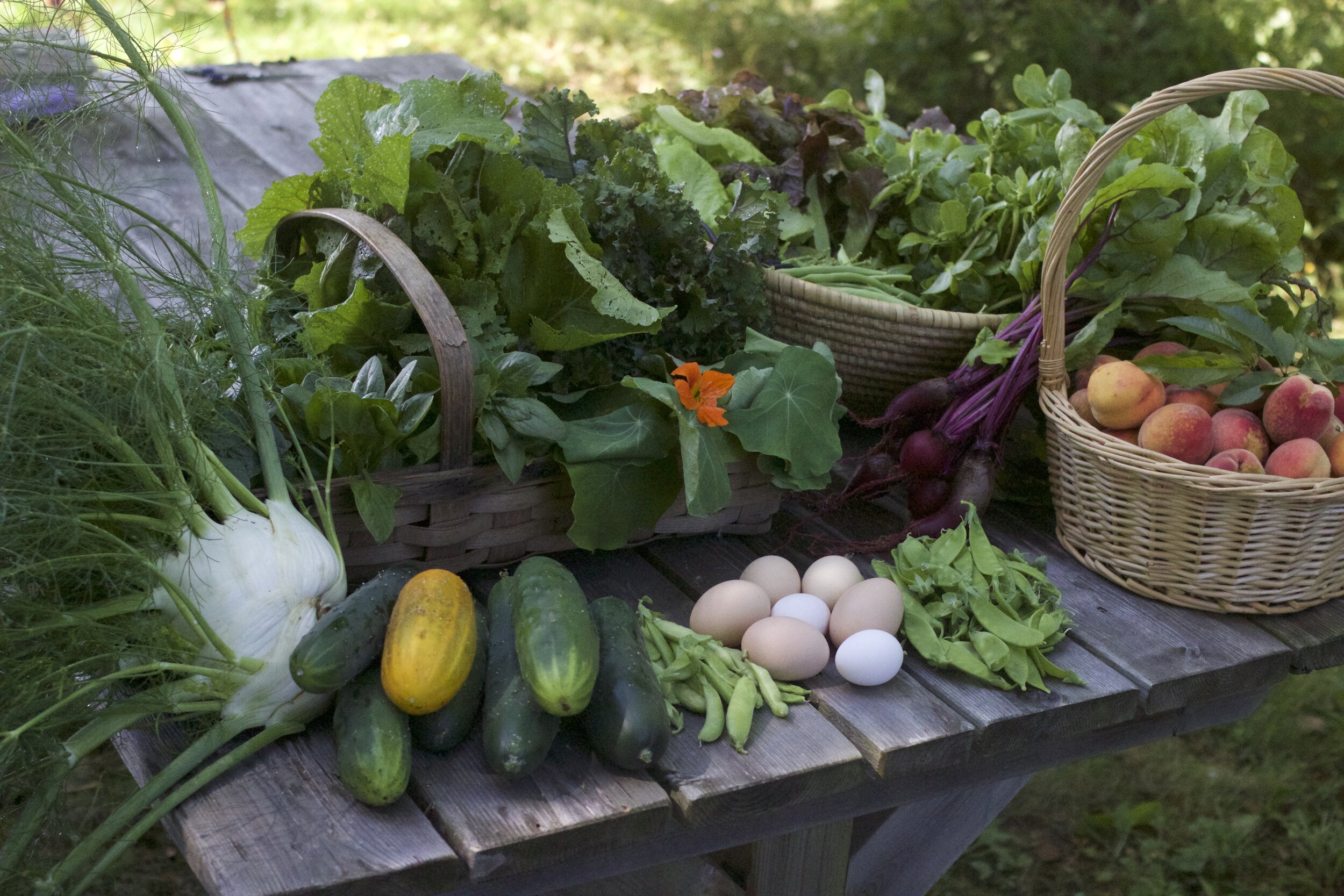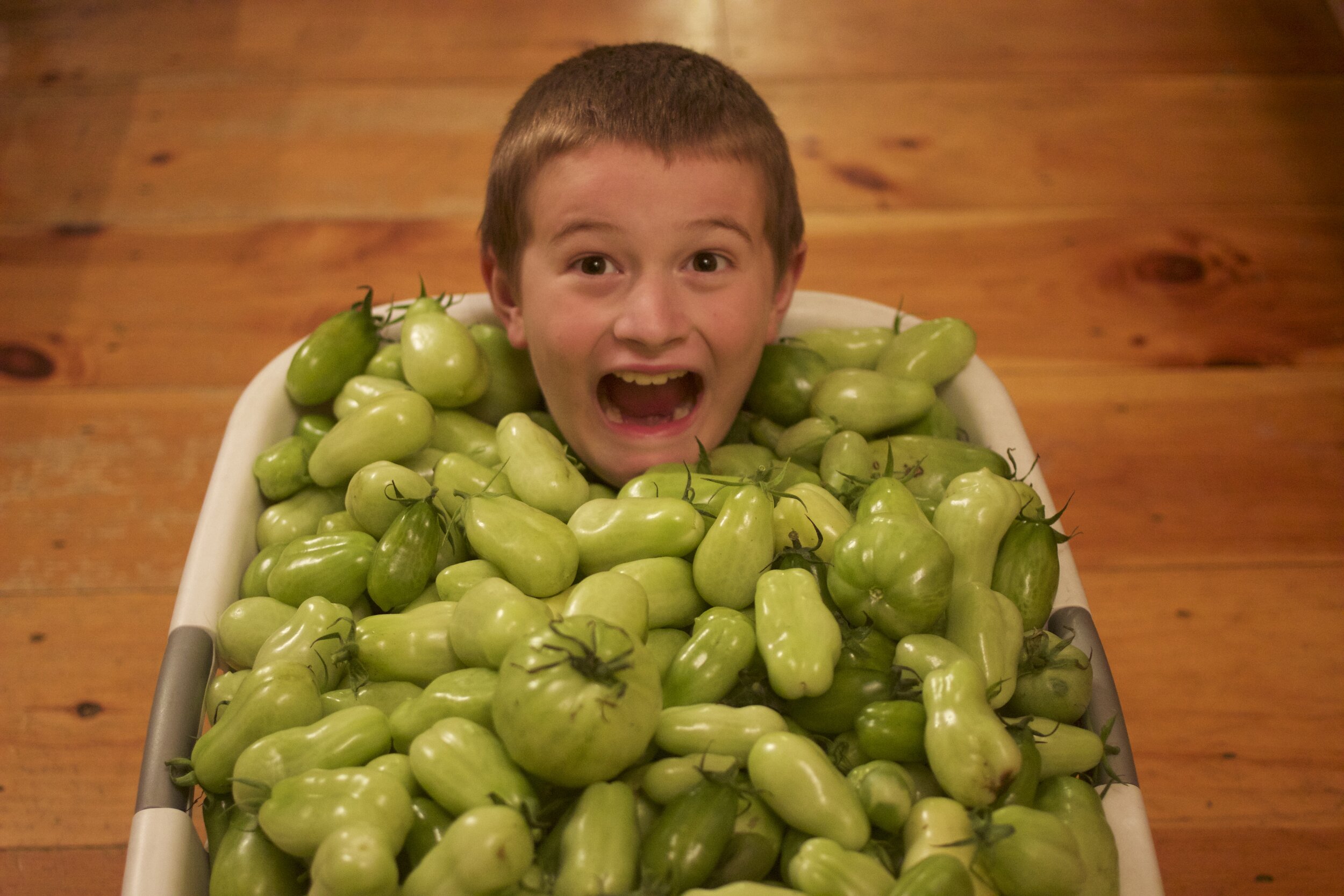“But…wouldn’t it be a lot easier to just buy salt at the store?”
”That looks like a lot of work! Why would you spend all that time cracking acorns?”
”Sugar is so cheap! What’s the point of making it yourself?”
”You spent all day in the woods doing…what?”
Whenever someone asks me a question like this (and it happens a lot!), I channel my beloved Lonesome Dove character, Gus McCrae: “Woodrow, you just don’t ever get the point.”
Save time! Save money! Save frustration! The world is so full of people peddling life hacks these days, they’ve got us all thinking that being efficient and thrifty (fitter. happier. more productive.) will lead us to health and contentment.
Sure, enjoying the final product of hunting and foraging in the form of a meal can be, dare I say, transcendent. But that’s truly only the tip of the iceberg; the culmination of an entire symphony’s worth of intent, effort, and persistence—sprinkled with a hefty dose of plain old farting around.
So, then, what are my reasons for spending so much time fiddling with fiddleheads and hand-plucking grouse?
1. It’s a reason to get outside. When was the last time you sat in the woods for a few hours—or heck, even just your yard—with no agenda other than to use your senses? You don’t realize how loud your own tummy grumbles really are until you’ve tried to sit motionless and silent as you wait for a deer to come in.
And talk about mindfulness! An app and a zen cushion aren’t the only way to get some present tense. Put on your “mushroom eyes” or “turkey ears,” and you can easily lose half a day in rapt focus.
Most folks are clear about the benefits of getting out into nature—the sun, the fresh air, the exercise—but sometimes it’s a struggle to get your own butt out the door. I’m not someone who gets excited solely by the prospect of sports like cross-country skiing or canoeing. But if I'm on the hunt, I can be inspired to leave the comfortable house even in the most inclement weather—to walk for miles and miles, just as our bodies still expect us to.
2. It’s a reason to be uncomfortable. And not only in a “Sure I froze my ass off all day, but this squirrel stew sure was worth it!” kind of way.
Regardless of whether you meet your quarry, I believe that simply the state of being uncomfortable comes with its own merits and is something for us to intentionally seek out. When we subject our bodies to the right amount of physical stress (like exercise), our muscles grow. And when we subject ourselves to the right amount of adversity (like being wet and frustrated, or sweaty and gnat-covered), it gives our brains the opportunity to cope and expand. Neuroplasticity FTW!
It’s a little bit of the ol’ “builds character” speech your dad probably gave you at some point. Or, as Steve Rinella from MeatEater would call it, “high-quality fun.” You know, the kind of fun that doesn’t necessarily feel fun at the time. But it’s the kind that leaves you feeling accomplished at the end, even if you didn’t do what you originally set out to. The kind that’ll give you real good stories to tell.
3. Interacting with, understanding, and eating a wide variety of foods keeps us healthier. There is a theory that system diversity is proportional to system stability. While watching a lecture on co-evolution recently, I learned that “Early humans were exposed to 80,000 - 220,000 phytochemicals [chemical compounds produced by plants], but now there are typically only 10,000 phytochemicals in our diet” (Tims, n.d.). We’ve also changed the dose of phytochemicals we get because the wild ancestors of our cultivated plants have much higher concentrations.
“I spent the past few years building up an immunity to iocane powder.”
But it’s not just that these phytochemicals were all directly “healthy” for us in terms of nutrients we need to survive—in fact, certain plants contain compounds that are toxic to us if ingested in high amounts. But a variety of those same compounds, when experienced by us in smaller amounts, can actually help our bodies prepare to deal with higher, toxic exposures at some point. Similar to how some vaccines produce an overcompensation to a stressor that is then “at the ready” should we come into contact with the actual viral invasion.
And lastly, the concept of xenohormesis tells us that stress occurring in one organism is sensed in a co-evolved organism. Think about the way that mushrooms communicate with trees underground—they’re able to pass information to each other about oncoming threats and even share nutrients to help with deficiencies. The more we interact with a variety of wild plants, the more information we acquire from absorbed phytochemicals about our surrounding ecosystem. And, the better our ability to manage our shared environmental stress.
4. It makes us more self-sufficient. And I don’t only mean in the apocalyptic, survival sense (though I do love me some prepper skills). In that same lecture on co-evolution, I also learned that “Once humans stopped foraging and relied on cultivated plants, complex biochemical pathways became dormant in response to the multitude of available plant compounds. For instance, the quantity of vitamin C we started ingesting lead to the loss of the ability to produce our own” (Tims, n.d.).
So, that’s kinda huge. Definitely a case of too much of a good thing: Once we became master cultivators and transporters (I can buy oranges in Maine, in February!), our bodies were all “Hey, look at that. Vitamin C is comin’ at us all the time now. Shut ‘er down, Frank!” Why waste good energy doing archaic things like producing our own vitamin C (or D, or countless others…) when we can store up fat instead? Pass the donuts!
This is yet another reason to eat seasonally and locally—give our bodies a break from the constant assault of almost “too much” nutrition, and maybe even give ourselves the opportunity to restart some of our forgotten engines. The ship on producing our own vitamin C may have sailed (I’m not sure when that stopped being a thing). But I do think that if we stop coddling ourselves, we'll remember how to be more resourceful and resilient.
Psst…there are also wild sources of vitamin C like wood sorrel, which makes a delicious, tangy quiche.
5. It connects you to people and place. I don't know about you, but as an American mutt I don't know who the fuck my people are. I don't know where the fuck “my" land is. Everything here feels amalgamated, borrowed, or stolen. Whether it’s the Mediterranean diet or the paleo diet or extract of Okinawan melon, they’re all just costumes we’re trying on to convince a percentage of our genes that they’ve found home.
In our young 245th year as a country, most of us are still flailing about trying to define “American” cuisine and what our relationship is to our native land. Or if it’s really our native land at all. We’d do well to consider all these things: What countries did our ancestors come from and how we can connect to them through their traditional foods? What people have lived in our current area, and how can we connect to them through our environment? But let’s not stop there.
Let’s start writing our own histories by building relationships with the land around us. As steward of our little 5-acre plot, I want to know who the trees are and discover the best microclimates for red clover. My genetic material may come from everywhere else, but we can start creating our own “traditional foods” right here by hunting and foraging.
It’s also an easy way to connect with folks who have spent their entire lives in Maine—chatting with a guy at the hardware store about turkey tactics or learning the best spots for ramps from an old-timer you’ve won over. These things give us stories.
”Remember the time Zog killed that mammoth with his bare hands?” “There I was, surrounded by chanterelles, when the ice storm blew in.” “I walked 11 miles with my dog in pursuit of upland birds, and didn’t get a one. I can’t wait to do it again.” Stories are the language of humanity, no matter where your genes originate or what century you’re in.
6. It is actually, mostly fun. Ian (a.k.a. my husband, a.k.a. The Minister of Fun) might admonish me for forgetting to mention this; “fun” isn’t something I tend to notice or seek out on its own. But I don’t want to leave you with the impression that hunting and foraging is all grueling, painful work. Just the act of stalking something warms up an ancient, yet strangely familiar part of yourself. I’ll never forget reading Michael Pollan’s descriptions of boar hunting, and now, 10 years later, I can finally relate.
Finding the right mushroom or plant is thrilling. Having a close encounter with a buck, even if it’s past legal shooting hours, gets your adrenaline and other hormones pumping like the best drugs from college. And that thing I mentioned about farting around? Cracking several hundred acorns is some of the most premium fart-around time you’re ever gonna get. Maybe I’m not so into traditional “self care,” but one of the best gifts I give myself is a repetitive, tangible task with my hands. Time to let my mind wander, listen to the crickets and the coyotes, and at the end I have a whole pile of something that looks impressive on Instagram.
7. And finally, it’s not not about the food. I mean, come on! If you’re into cooking and experiencing unique flavors, wild food is where it’s at. Not only will you be wowed by the aroma of dried sweetfern or the acute astringency of late-season dandelion greens (yoinks!), but experiencing wild food in its variety of natural settings provides endless inspiration.
Maybe, because these edible plants are growing next to each other on this log, I should consider adding them to the same dish for complimentary flavors? Let’s try to find the source for, and simmer in broth, the greens that this grouse has in her crop. Let’s waste nothing. Let’s save the microscopic amount of back fat from this red squirrel in a jar in the freezer, until we acquire enough to render. And then make biscuits. To scoop up the stew we thickened with flour made from the acorns that same squirrel was eating last fall.
Bear, moose, wild turkey, even the young doe hit by the car. Their natural state isn't to be “gamey.” Don't listen to that. Butcher, store, and cook them properly…and you'll wonder why you went so long without it. These aren’t difficult things to do. There’s a whole world out there, just on the other side of your walls.
We humans have to stop thinking like we’re acting alone. From the bacteria in our guts to the “weeds” on our yards, we aren’t—and never have been—in control. We’re not healthier because we put up a bunch of walls. We’re not safer buying produce from the grocery.
Sure, I could science the shit out of this and explain that phytochemicals may potentiate endogenous regulators on multiple protein sites. Rather than competing for binding sites, they bind elsewhere and change the likelihood of those binding sites being activated. This produces an uptick in our own immune or enzymatic response, increasing our biological propensity to be responsive to the environment we share. In other words, plants aren’t necessarily healing us directly. Rather, they’re showing us how to heal ourselves.
But, I almost prefer the simplistic-yet-accurate, bordering-on-hippy-dippy explanation I give my daughter: ”Do you know why this medicine we made from the plant you grew is going to help you? Because it knows who you are.”
